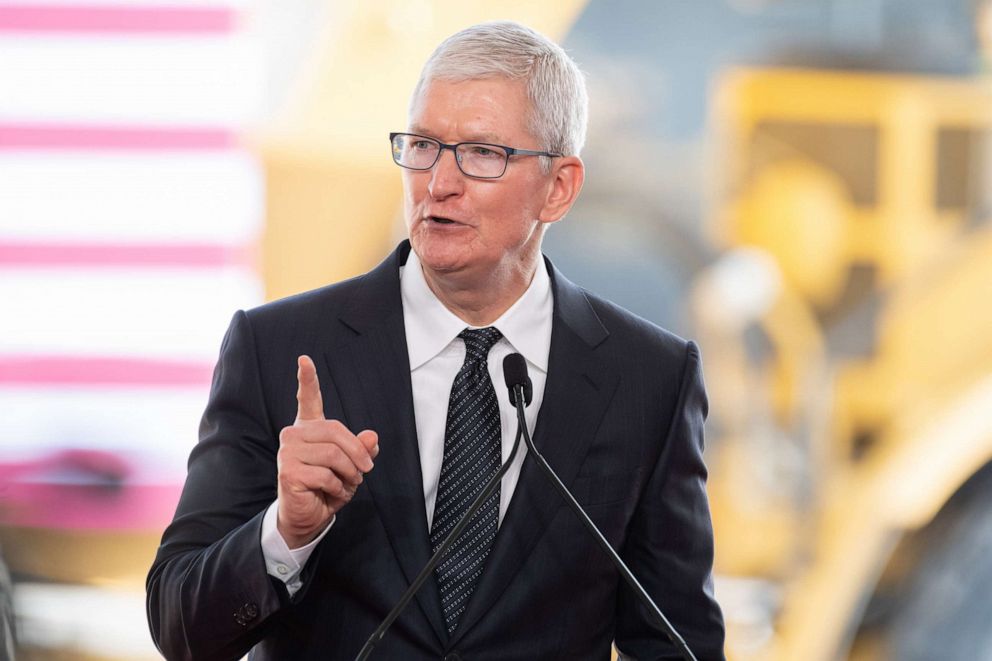In the last 365 days, Apple has achieved a massive milestone de-valuation of $1 Trillion market value which is probably not the favorite one owners would have liked to achieve. The company’s shares rallied in recent days, but the massive loss in value reflects difficult economic times for companies across the tech industry and beyond. Obviously, there was not a single reason for all that loss and there were multiple factors that led to such a drastic loss we will try to cover all of them in this article.
The major factor that has caused Apple and other companies to enjoy heavy devaluation includes a shift from pandemic-era consumption that flipped the fortunes of companies large and small. Another major factor was the rise in inflation that triggered an aggressive response from the Federal Reserve and supply chain disruptions that eased but persisted with zero-COVID lockdowns in China. Angelo Zino, a senior industry analyst at CFRA Research, told ABC News.
“You’re talking about $1 trillion wiped out from the economy in one stock – it’s a big number and it isn’t something that should be ignored,”
Like many tech companies, Apple has suffered from a major consumer shift away from the pandemic-era focus on buying goods.
At the height of the pandemic, hundreds of millions across the globe facing lockdowns replaced restaurant expenditures with couches, exercise bikes, and tech products. Over the first three months of 2021, for example, Apple’s profits more than doubled compared to the same period a year prior.
That change in taste has punished the bottom line of Apple and many tech firms.
“Since the pandemic has been winding down, people have been shifting spending away from consumer electronics to travel, restaurants, and ball games,”
Another reason behind the embarrassing sales and ultimately devaluation of the iPhone 14 series is that the core processors of the iPhone 14 and iPhone 14 Plus did not change. They are all A15 old chips, which makes many consumers not buy them. In addition to chips, the iPhone 14 and iPhone 14 Plus does not have a substantial improvement in terms of other cameras, screens, etc.
At the same time, Apple is also facing capacity problems caused by the outbreak at Foxconn’s factory in China. Multiple reports have suggested that Apple is considering adjusting the model configuration and pricing of next year’s iPhone 15 series to make the basic version more attractive.
The company is not happy with the sales of the iPhone 14 and 14 Plus. Apple is also facing the attack of Android mobile phone brands in the high-end market, especially in the folding screen mobile phone market. Experts believe that if there is no related product for a long time, Apple will be robbed of a certain market share in the high-end field.
Apple has also faced challenges rooted in rapid price hikes and the Federal Reserve’s policy response, which has slowed some areas of the economy and pummeled the stock market. At its peak, inflation reached 9.1% in June, a level last seen more than four decades ago. To dial back the rising costs, the Federal Reserve has undertaken an aggressive set of interest rate hikes.
An increase in the benchmark interest rate raises borrowing costs for consumers and businesses, which in theory should slash inflation by slowing the economy and eating away at demand. That means borrowers, whether businesses or individuals have a harder time accessing loans, the lifeblood of economic activity.
Because interest rate hikes typically weigh on the economy and corporate earnings, investors flee. That pain is particularly acute for tech stocks like Apple because investors choose them in the first place for strong profit growth, which appears increasingly unlikely as interest rates jump.
High prices and rising borrowing costs can also weigh on consumers, eating away at savings and casting aside spending on items like iPhones or MacBooks.
Consumer spending proved resilient for much of the year due in part to savings from the pandemic, but the cushion appears to have dwindled in recent months. The personal savings rate fell to 2.3% in October, the lowest rate in nearly two decades, according to data from the Commerce Department.
“The state of the consumer is extremely important for a company like Apple,”
Read More:





 Will Trump Be Back On Facebook And Insta? Meta Will Give Its Decision Soon!
Will Trump Be Back On Facebook And Insta? Meta Will Give Its Decision Soon!